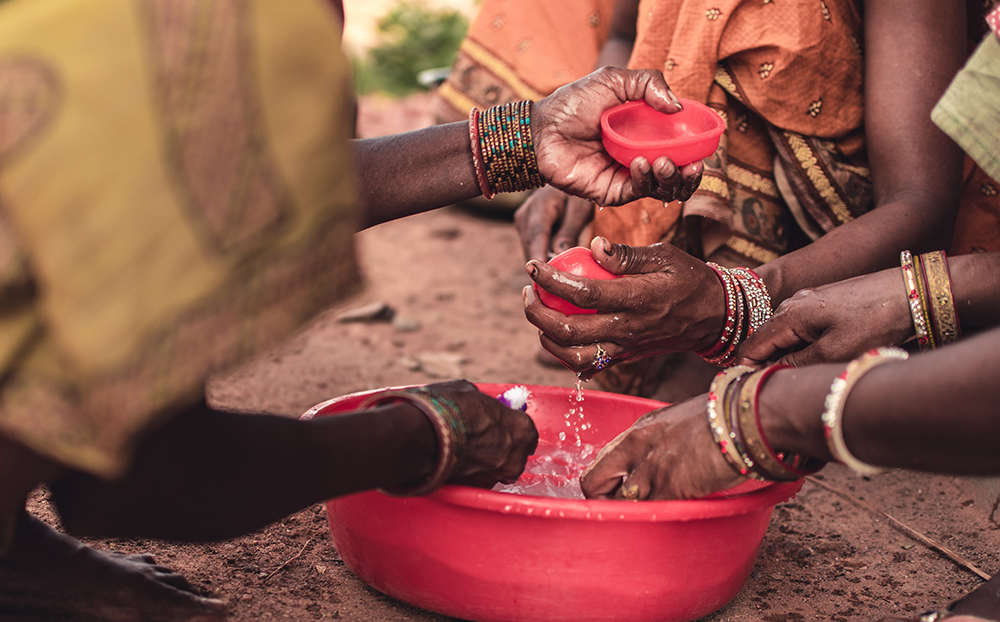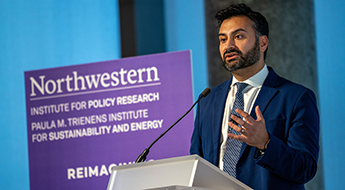Experts Highlight Importance of Water Security Amid COVID-19 Pandemic
Nearly 25% of households in lower-income countries struggle to find water for handwashing
Get all our news
Inequalities in access to a resource fundamental for existence, and for preventing transmission of COVID, must not continue. My co-authors and I lay out some key actions that can make the world more water secure, and safer for us all.”
Sera Young
Associate professor of anthropology and IPR fellow

Doctors and epidemiologists have continually emphasized the importance of handwashing during the COVID-19 pandemic, but still people across the globe struggle to access the clean water necessary to keep themselves and their families safe. In Nature and Sustainability, IPR anthropologist Sera Young and her co-authors, including former Northwestern study coordinator Josh Miller, urge policymakers to focus on three key areas to ensure better water security.
Studies have shown that nearly a quarter of households in low- to middle-income countries are unable to follow basic handwashing guidelines, and that an estimated 40% of households globally lack access to basic handwashing facilities. In that light, Young and a team of researchers at the U.K.’s University of Birmingham published their call for policymakers to focus on changing behaviors around water, improving water infrastructure and technology, and promoting new alternatives when fresh water is inaccessible.
“Inequalities in access to a resource fundamental for existence, and for preventing transmission of COVID, must not continue,” said Young. “My co-authors and I lay out some key actions that can make the world more water secure, and safer for us all.”
First, the researchers emphasize that existing sources of fresh water should be protected and maintained through the building of adequate infrastructure. That could include water treatment and distribution systems, the recycling and reuse of wastewater and rainwater. Young and her co-authors note that not only are these environmentally prudent steps, but that they’re likely to be more cost-effective than remediating already-polluted sources of water.
Next, they focused on the importance of education about water-use behaviors. The COVID-19 pandemic is a crucial opportunity for local leaders and communities to promote the responsible use of water. The authors recommend inclusive solutions that include the formation of panels composed of local stakeholders and experts, who can responsibly manage their communities’ water use as climate and population changes may lead to an uncertain future.
The authors also focus on the importance of alternatives to water in times of crisis, like temporary taps and access to hand sanitizer. Opportunities for handwashing vary not only by town or region, but by household, making it crucial to use tools such as Young’s HWISE Scale to understand the likelihood and location of extreme water shortages.
“This is a great example of how our HWISE scale, that measures household water insecurity experiences, makes visible the often invisible crisis of water insecurity,” Young said.
“Water insecurity has consequences for the well-being—both mental and physical—of billions of people,” said co-author Stefan Krause of the University of Birmingham. “The costs of not preparing for future crises will be catastrophic.”
Read the full comment article here.
Sera Young is an associate professor of anthropology and an IPR fellow.
Photo credit: Pexels
Published: August 24, 2020.


